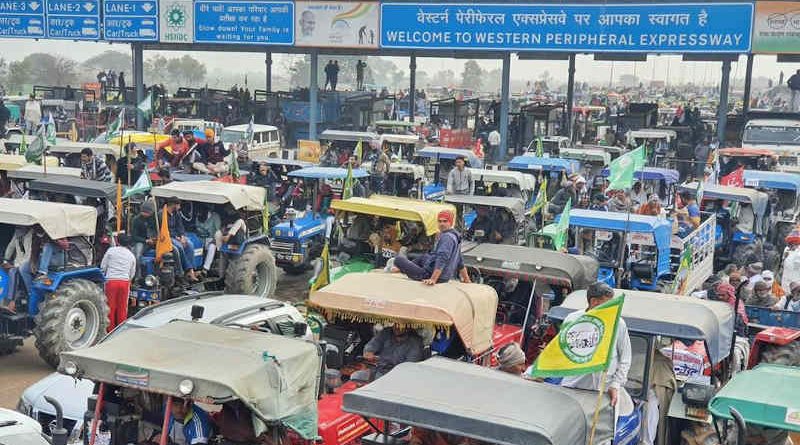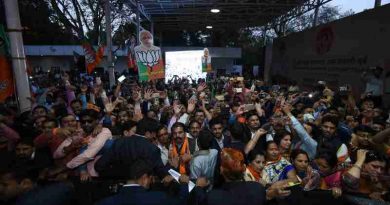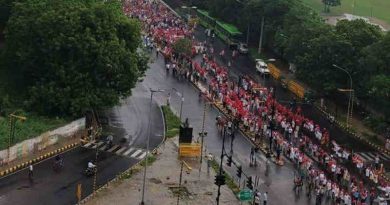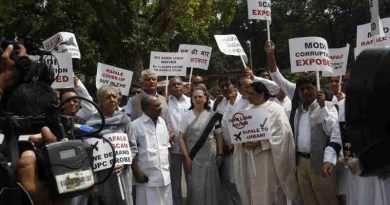Civil Unrest in India: Police Use Force to Stop Protesters
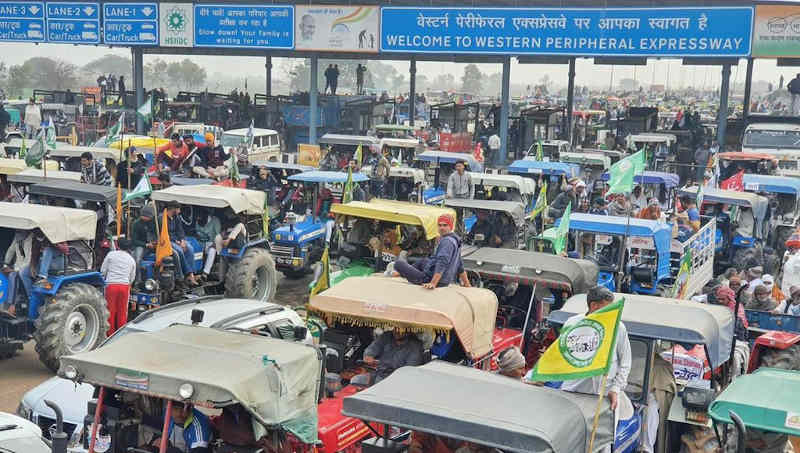
The Sanyukt Kisan Morcha leaders have decided to intensify their stir to target the Modi government which has failed on almost all socio-economic fronts.
By Rakesh Raman
Government-backed police and security forces fired tear gas shells on the procession of farmers who were entering India’s capital New Delhi to celebrate Republic Day on January 26.
There were also reports of policemen beating unarmed farmers with batons when the farmers tried to break police barricades to enter Delhi. Earlier, Delhi Police had reluctantly allowed the farmers to hold their tractor rally on a limited route in the capital.
But a group of farmers from Punjab argued that as citizens of India they should be free to move anywhere in the country without police permission. When police used force to stop the protesting farmers, there were clashes between police and protesters at various places in Delhi.
The tractor rally in Delhi on the Republic Day is a new dimension in the ongoing agitation of farmers who have been protesting for the past couple of months against the farm laws introduced by the government of Prime Minister (PM) Narendra Modi.
Hundreds of thousands of Indian farmers – mainly from Punjab – have been protesting on the outskirts of Delhi since November 27 against the new farm laws introduced by the Modi government. While farmers expect the government to repeal the contentious laws, the government has refused to accept farmers’ demands.
The ministers in the Modi government have been holding perfunctory talks with farmer unions to convince them about the benefits of farm laws. But farmers say these are futile exercises as the government is not serious to address their issues.
The Modi government is trying to discredit the farmers and harassing them through Central intelligence agencies. For example, the National Investigation Agency (NIA) – which is India’s counter-terrorist task force – has started calling farm leaders with curt notices that baselessly link them with terror activities.
Since the farm leaders in the Sanyukt Kisan Morcha (Joint Farmers Front) – an umbrella organization of over 40 Indian farm unions – have failed to lead the agitation successfully, a handful of belligerent Sikh farmers from Punjab have decided to take things in their own hands.
Today, the furious farmers stormed the Red Fort complex violently and hoisted Nishan Sahib, which is a Sikh religious flag, on a flagpole which is reserved for the Indian national flag. This action is expected to harm the ongoing movement because now it will be construed as a Sikh protest instead of an all-India farmers’ conflict with the Modi government.
The embarrassed leaders of Sanyukt Kisan Morcha have disassociated themselves from the “anti-social elements” who – according to them – have infiltrated the January 26 tractor rally which was supposed to be peaceful. It is also believed that the miscreants were sent by the government to defame the agitation so that it could use force against the protesters who have been sitting on the outskirts of Delhi.
Meanwhile, the Sanyukt Kisan Morcha leaders have decided to intensify their stir to target the Modi government which has failed on almost all socio-economic fronts. During the six years of Modi’s rule, Indians have experienced unprecedented unemployment, poverty, corruption, and economic disaster in the country.
As the civil unrest is spreading across the country, the farmers have given a call to go toward the Indian Parliament on February 1 to highlight their demands while the Budget session of Parliament is scheduled to begin from January 29.
By Rakesh Raman, who is a national award-winning journalist and social activist. He is the founder of a humanitarian organization RMN Foundation which is working in diverse areas to help the disadvantaged and distressed people in the society. He also runs F A C T (Farm And Crop Times) news magazine on global farming and agricultural affairs.

